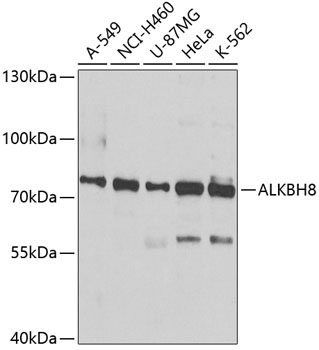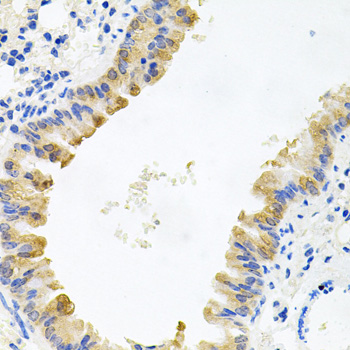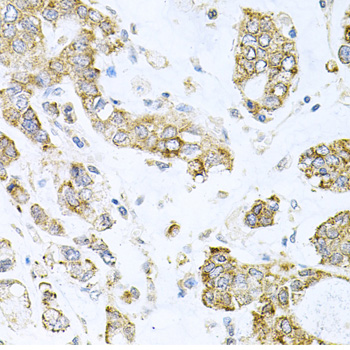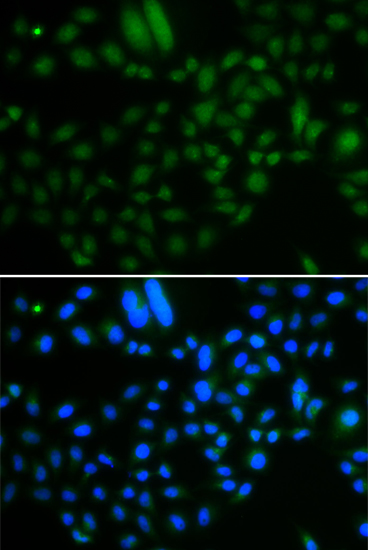-
Product Name
ALKBH8 Polyclonal Antibody
- Documents
-
Description
Polyclonal antibody to ALKBH8
-
Tested applications
WB, IHC, IF
-
Species reactivity
Human, Mouse
-
Alternative names
ALKBH8 antibody; ABH8 antibody; TRM9 antibody; TRMT9 antibody; alkB homolog 8, tRNA methyltransferase antibody
-
Isotype
Rabbit IgG
-
Preparation
Antigen: Recombinant fusion protein containing a sequence corresponding to amino acids 1-230 of human ALKBH8 (NP_620130.2).
-
Clonality
Polyclonal
-
Formulation
PBS with 0.02% sodium azide, 50% glycerol, pH7.3.
-
Storage instructions
Store at -20℃. Avoid freeze / thaw cycles.
-
Applications
WB 1:500 - 1:2000
IHC 1:100 - 1:200
IF 1:50 - 1:100 -
Validations

Western blot - ALKBH8 Polyclonal Antibody
Western blot analysis of extracts of various cell lines, using ALKBH8 antibody at 1:1000 dilution.Secondary antibody: HRP Goat Anti-Rabbit IgG (H+L) at 1:10000 dilution.Lysates/proteins: 25ug per lane.Blocking buffer: 3% nonfat dry milk in TBST.Detection: ECL Basic Kit .Exposure time: 90s.

Immunohistochemistry - ALKBH8 Polyclonal Antibody
Immunohistochemistry of paraffin-embedded mouse lung using ALKBH8 antibody at dilution of 1:100 (40x lens).

Immunohistochemistry - ALKBH8 Polyclonal Antibody
Immunohistochemistry of paraffin-embedded human gastric cancer using ALKBH8 antibody at dilution of 1:100 (40x lens).

Immunofluorescence - ALKBH8 Polyclonal Antibody
Immunofluorescence analysis of A549 cells using ALKBH8 antibody . Blue: DAPI for nuclear staining.
-
Background
Catalyzes the methylation of 5-carboxymethyl uridine to 5-methylcarboxymethyl uridine at the wobble position of the anticodon loop in tRNA via its methyltransferase domain. Catalyzes the last step in the formation of 5-methylcarboxymethyl uridine at the wobble position of the anticodon loop in target tRNA. Has a preference for tRNA(Arg) and tRNA(Glu), and does not bind tRNA(Lys). Binds tRNA and catalyzes the iron and alpha-ketoglutarate dependent hydroxylation of 5-methylcarboxymethyl uridine at the wobble position of the anticodon loop in tRNA via its dioxygenase domain, giving rise to 5-(S)-methoxycarbonylhydroxymethyluridine; has a preference for tRNA(Gly). Required for normal survival after DNA damage. May inhibit apoptosis and promote cell survival and angiogenesis.
Related Products / Services
Please note: All products are "FOR RESEARCH USE ONLY AND ARE NOT INTENDED FOR DIAGNOSTIC OR THERAPEUTIC USE"
